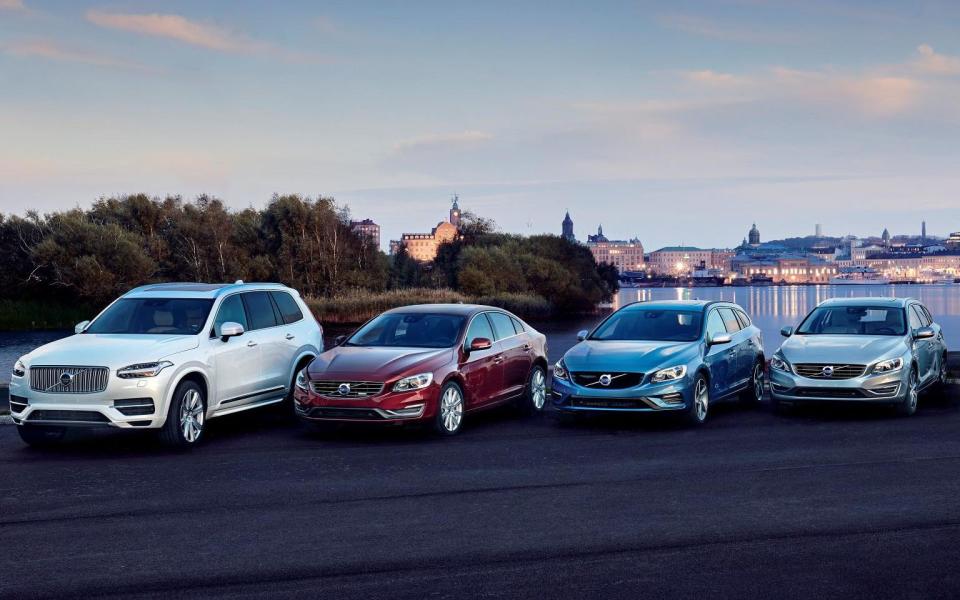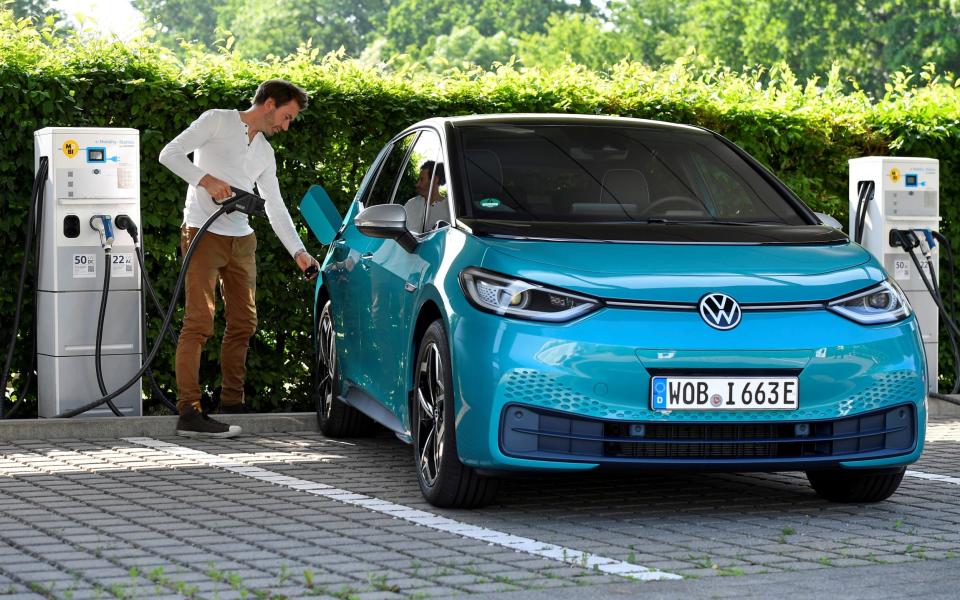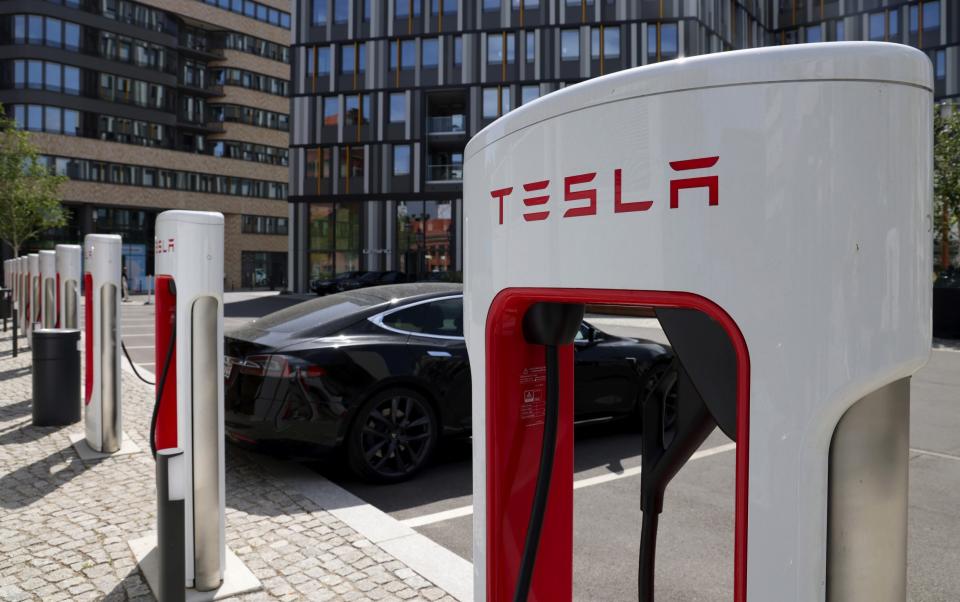Electric car battery recycling presents a new challenge

Electric cars might lack the poisonous exhaust emissions of petrol or diesel models but they still have a hefty environmental impact. As electric vehicle (EV) sales boom, dealing with their batteries when it’s time to scrap the cars is one of the biggest concerns.
As Paul Anderson, primary investigator for the Faraday Institution’s project on dealing with end-of-life EV batteries, put it: “Recycling is the key to the sustainability of the electric car revolution.”
And the sooner we do it the better. A University of Birmingham Policy Commission report claims: “The total number of EV batteries reaching end-of-life for battery recycling could be between 70,000 and 106,000 battery packs by 2025.”
It adds: “In 2017, sales of electric vehicles exceeded one million cars per year worldwide for the first time. Making conservative assumptions of an average battery pack weight of 250kg and volume of half a cubic metre, the resultant pack wastes would comprise around 250,000 tonnes and half a million cubic metres of unprocessed pack waste, when these vehicles reach the end of their lives.”
Clearly that can’t all go into landfill. For starters, it’s a waste of finite resources. But it’s also valuable. Lithium-ion EV batteries contain cobalt currently listed at $43,650 (£30,783) per tonne by the London Metal Exchange, nickel at $17,047 (£12,042) per tonne plus various other metals such as aluminium and copper.

Then there’s the lithium. Battery manufacturers estimate there is around 160g per battery kWh. That means the battery of a regular 60kWh EV will contain around 9.6kg of lithium.
How efficiently this is recycled is debatable. By 2030, Ajay Kochhar of Canadian battery recycling firm Li-Cycle reckons there could be 11m tonnes of spent lithium-ion batteries globally. However, Hans Eric Melin from consultancy Circular Energy Storage believes around three quarters of end-of-life EV batteries are currently recycled in Europe.
“They are simply too valuable not to be,” Melin said. “The battery on a crashed Tesla Model S is worth at least £10,000. There are 16 modules of cells and each will go for around £800.”
How easily those batteries and the cars that go around them can be recycled is currently easier said than done. An EV contains a far wider range of materials than an internal combustion-engined car. There’s the massive battery pack, the electronics controlling it, the regenerative braking system, cooling fans and screens, all of which contain technology-critical – and therefore costly – materials.
With sales of new petrol and diesel cars banned from 2030, by 2050 there will be about two million of these complex-to-recycle electric cars needing to be dismantled every year in the UK. For the recycling industry this could be a watershed moment.

For a start, disassembling an electric car with its high voltage battery can be dangerous for the unqualified. The materials in lithium-ion batteries are highly reactive. Writing for Nature.com, the Faraday Institution claimed: “Already the number of fires being reported in metal-recovery facilities is increasing, owing to the illicit or accidental concealment of lithium-ion batteries (from phones etc…) in the guise of, for example, lead-acid batteries.”
The boss of Bolton-based car dismantler The Scrappers, Terry Walker, told us: “I think in a few years’ time taking cars apart will become the responsibility of their manufacturers. That way we’ll be able to ensure batteries are recycled safely. Just as manufacturers have assembly plants, they’ll have disassembly plants. As time moves on, I think the traditional independent breaker’s yard will be phased out.”
He could have a point. In addition to the inherent risks, treating the batteries is time-consuming. Not only do manufacturers use different methods of combining the cells in the batteries; they also have different methods of connecting them to their cars. Removing a battery from a BMW i3 will likely be very different to taking one out of a Tesla, for instance.
Faraday Institution research fellow Gavin Harper explained: “The current approach to recycling an EV is very labour intensive. You can’t just dump an EV in a shredder.
“When you mix all the battery components together, extracting valuable materials is very difficult. We need to understand how we can automate the end-of-life process using robots for maximum efficiency and to extract maximum value.”

To achieve this the Faraday Institution has £14 million of UK government money for a project called ReLiB. This is investigating the infrastructure for managing the removal of lithium-ion batteries from EVs.
It’s not just to protect the planet, there’s a financial incentive. It estimates that an EV battery has a second-life value of £83 per kWh. As the Faraday Institution report says: “The batteries could potentially be exported to large recyclers overseas. However, this represents a lost opportunity for the UK to capture the value in these materials.”
A battery that’s deemed to be insufficient for powering a car still has around 70 per cent of its power storage capacity. Nissan uses the cells from batteries in redundant Leafs to power the automated guided vehicles that deliver parts to the assembly line at its Oppama plant south of Tokyo. In this format, the firm estimates it’ll get another seven years of use out of the Leaf batteries.
At the Johan Cruijff ArenA stadium in Amsterdam, the power system uses the equivalent of 148 repurposed Nissan Leaf batteries as a back-up power system. And redundant EV batteries could be used to store energy in houses.
Even so, as the Faraday Institution’s Harper said: “Reuse is good but recycling has to be the ultimate destination for lithium-ion batteries.”
When will we get there? The ReLiB project is still in its early phases and EVs are being sold at an ever-increasing rate: more than 41,000 new EVs have hit the road in the UK already this year.
Melin believes getting the timing right is a delicate balance between unprofitable recycling overcapacity and having too many EVs awaiting dismantling, but he remains optimistic: “In 20 years’ time, we’ll have an automated line with 10,000 VW batteries being recycled on one side and 10,000 Land Rover batteries on the other.”
For new and used buying guides, tips and expert advice, visit our Advice section, or sign up to our newsletter here
To talk all things motoring with the Telegraph Cars team join the Telegraph Motoring Club Facebook group here
